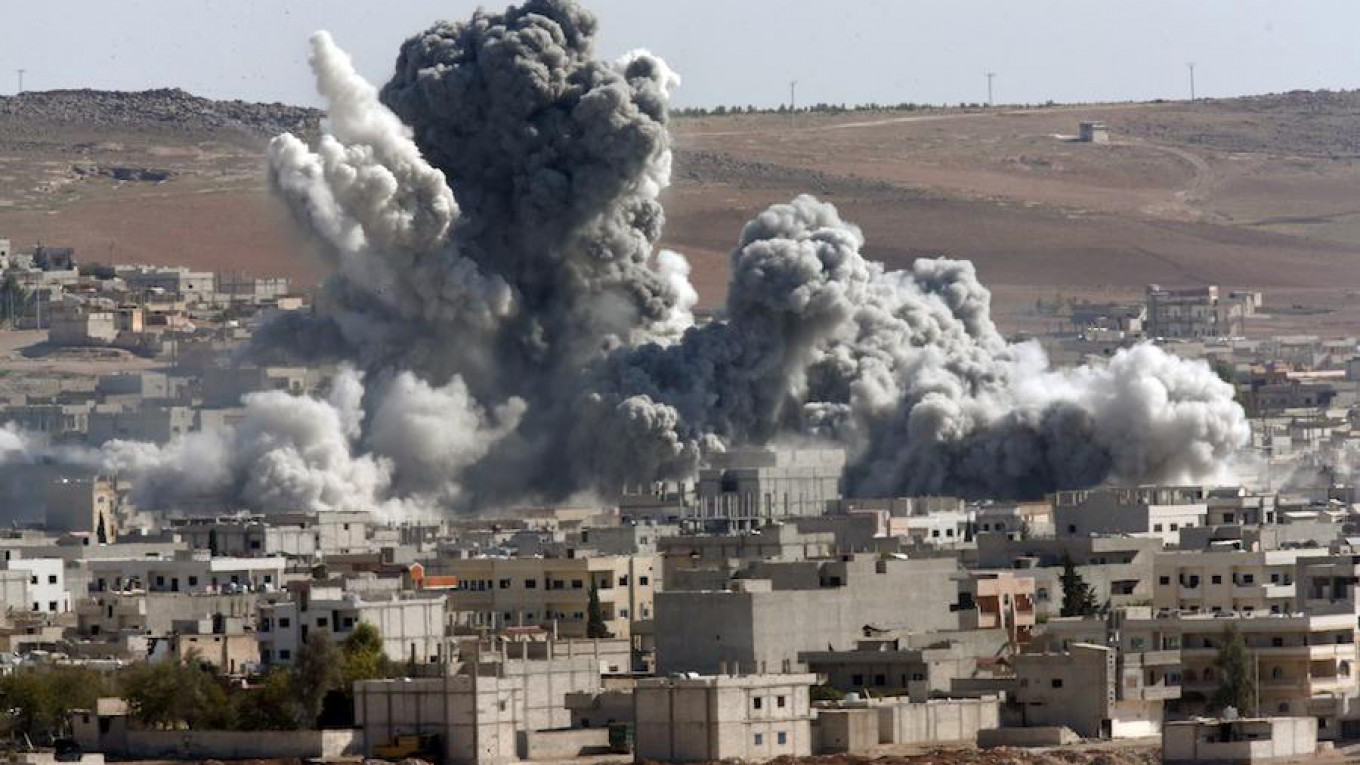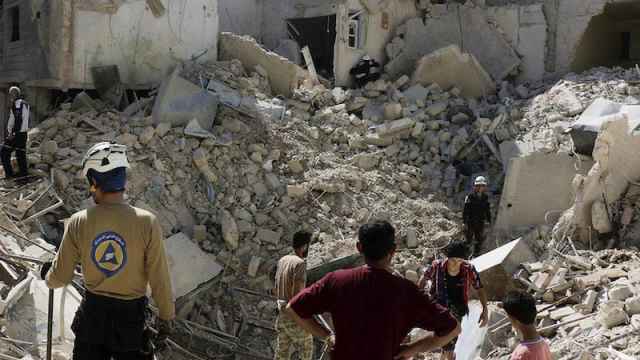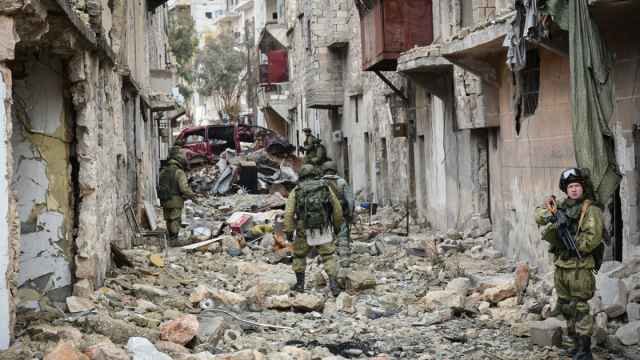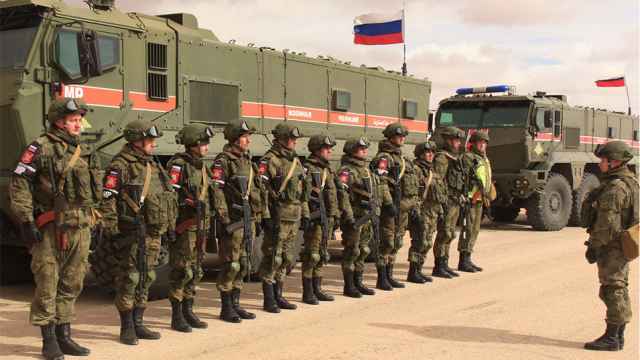Russian military experts claim to have evidence that Syrian rebels used mustard gas against civilians in the country's Aleppo province, the Interfax news agency reported Friday. Chemical ammunition was used against targets in the village of Maarat Umm Hawsh in September, according to experts from Russia's Armed Forces Chemical Corps.
Experts claim that a black, oily liquid was found in an un-exploded 240mm mortar round near a soldiers' barracks in the village revealed the presence of mustard gas. The ammunition has since been sealed by Russian troops and delivered to the Center for Reconciliation in Aleppo for further research, Interfax reported.
More than 40 people were injured in the attack on the village's residential quarters in September. Eyewitness accounts of the event have described victims' symptoms to be consistent with exposure to mustard gas.
Sulfur mustard, more commonly known as mustard gas, was originally used in the First World War. Despite being banned in 1923, it has been used in modern conflicts such as the Iran-Iraq War during the 1980s. Exposure to the gas can lead to painful blisters, burns and internal bleeding.






